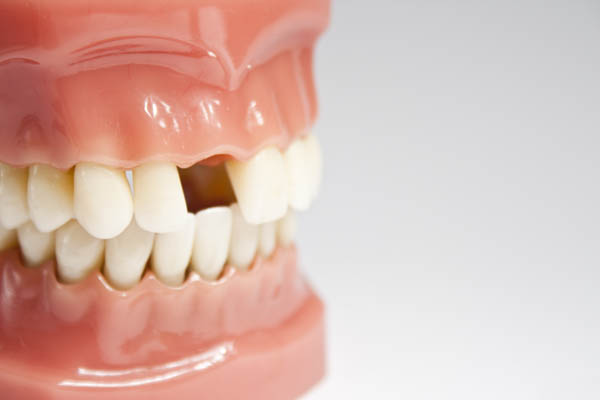Impact of Failing to Replace a Missing Tooth

A missing tooth can affect the aesthetics of your smile, but that is only one of the problems that it can cause. This article will explore a few of the consequences of not replacing missing teeth with appropriate dental prosthetics like dental implants, dentures, or bridges.
Consequences of not replacing missing teeth
A missing tooth can be the result of various things, like severe tooth decay, trauma to a tooth, or periodontal disease. Losing a tooth can be a traumatic experience because it drastically changes one's appearance, which is why some people immediately seek a replacement. However, others opt to keep a gap in their smiles. Consequences of not replacing a missing tooth include the following.
1. Causes bone deterioration in the jaw
The jawbone serves the vital function of anchoring down teeth roots. Teeth also have an essential role: helping to keep the jaw stimulated by transferring bite forces into it. Like muscle tissues, bone tissues need regular stimulation to stay strong and healthy. It causes these tissues to continuously repair damaged cells. A loss of this stimulation leads to atrophy.
Bone tissues in the jawbone are reabsorbed when parts of the jaw stop getting stimulated, leading to changes in the jaw and facial structures. It can diminish the jawline and lead to the chin receding. Reabsorption also increases the risk of the person losing more of their teeth.
Most oral prosthetics for missing teeth like dentures and bridges do not give the jawbone the stimulation that it needs, so replacing teeth with either will not stop the breakdown of bone tissues in the jaw. Dental implants and their hybrids are the only teeth replacement options that prevent bone tissue loss due to missing teeth.
2. Causes poor teeth alignment
Teeth are constantly pushing on each other, so one falling out alters that balance. The remaining teeth usually shift toward the gap created by the missing tooth, to close it up. It is the body’s way of trying to make up for the fact that there is one less tooth in the mouth.
Unfortunately, that can cause teeth misalignment, and it can also lead to issues with the temporomandibular joints, among other problems. Any oral prosthetic that fills the space left by a missing tooth helps keep the remaining teeth in their correct alignment.
3. Increases the risk of infection
Failing to replace a missing tooth increases bacteria activity in the space left behind, increasing the risk of gum disease. Gum disease is the top cause of adults losing their teeth, according to the National Institute of Dental and Craniofacial Research. It is an infection of gum tissues that occurs when bacteria get below the gum line. Having an exposed socket in the mouth makes it easier for these microorganisms to reach that area.
We replace missing teeth
Are you ready to restore your smile? Call or drop by our Huntsville clinic to learn more about the importance of replacing missing teeth.
Request an appointment here: https://balmoraldentalcenter.com or call Balmoral Dental Center at (256) 429-3870 for an appointment in our Huntsville office.
Check out what others are saying about our dental services on Yelp: Missing Tooth in Huntsville, AL.
Related Posts
Partial dentures are a great tool to improve your confidence and quality of life. They are removable artificial teeth, look realistic, and can be used for everyday tasks like eating and chewing. This allows people who need them to restore normalcy to their lives. In this guide, we will go over qualifications that make you…
Wondering about cosmetic dental services? Read on to learn more. Because such treatments are an investment, it is a good idea to extend the life of any cosmetic dental work you have done, such as teeth whitening or dental veneers.Typically, the dentist will provide their patients with detailed post-op instructions based on individual needs. Following…
Wondering about cosmetic dental services? Read on to learn more. These types of treatments are available to practically everyone who wants to improve their smile. Today's technological developments allow dentists to change the alignment, color, and shape of teeth, as well as correct enamel and gumline problems.An aesthetically pleasing smile can also be a good…
The right cosmetic dental services can treat any oral problem that impairs your smile. After a complete assessment, your general dentist can suggest specific treatments to target the issue. You can receive at least one procedure to improve your smile. The following are cosmetic dental services that can elevate your smile.The dentist will recommend a…


